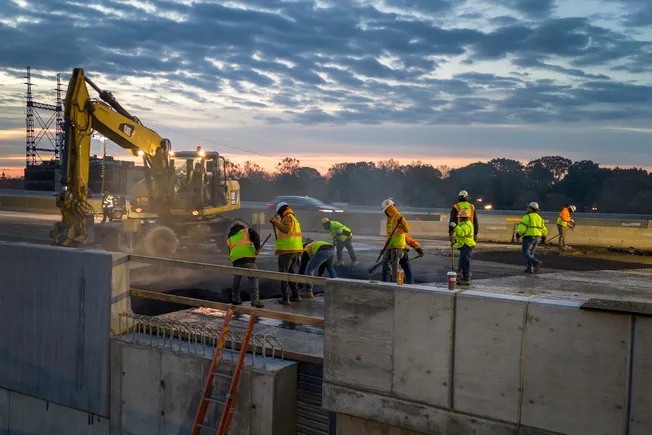One of President Donald Trump’s first executive orders concerning infrastructure spending has created uncertainty about the meaning and impact of the directive on cities and states.
On Jan. 20, an executive order titled “Unleashing American Energy” directed all federal agencies to stop disbursing funds appropriated through the Infrastructure Investment and Jobs Act or the Inflation Reduction Act.
However, the order’s wording was unclear to many, prompting the Office of Management and Budget to issue a memo limiting the directive to programs which the president terms as part of the “Green New Deal.” These include the $2.5 billion Charging and Fueling Infrastructure Discretionary Grant Program and the $5 billion National Electric Vehicle Infrastructure Formula Program. These programs are designed to help build out the nation’s EV charging stations.
Section 2 of the Jan. 20 order also refers to energy exploration, rare earth minerals, gas stoves and “other ill-conceived government-imposed market distortions that favor EVs over other technologies,” the order states.
But the memo still left some with questions. “The White House’s memo update seems to be clear that they only want to apply the energy order to Section 2 [of the executive order],” said Yonah Freemark, research director of the Land Use Lab at Urban Institute, in an email. “That said, Section 2 feels pretty broad from my perspective, so it leaves a lot of room for interpretation.”
Still, the lack of clarity around Trump’s executive order may lead some cities and states to pause or review certain projects to avoid taking on costs they expected to be covered by federal grants. As of December, $294 billion in IIJA funds remained unallocated.
“The bipartisan Infrastructure Investment and Jobs Act and the Inflation Reduction Act have funded much-needed projects that connect Americans to opportunity in hundreds of localities in all 50 states,” said Ryan Russo, executive director, and Janette Sadik-Khan, chair, of the National Association of City Transportation Officials, in a statement.
Nevada Democrats reacted with concerns about the order’s possible impact on solar and wind farms and the Brightline West high-speed rail project to connect Las Vegas and Southern California.
“The President’s executive order is an economic blow to Nevada,” U.S. Rep. Susie Lee, D-Nev., told 8NewsNow, a Las Vegas broadcast station. According to the news outlet, the executive order revokes several Biden administration orders that Nevada has adopted as state law.

